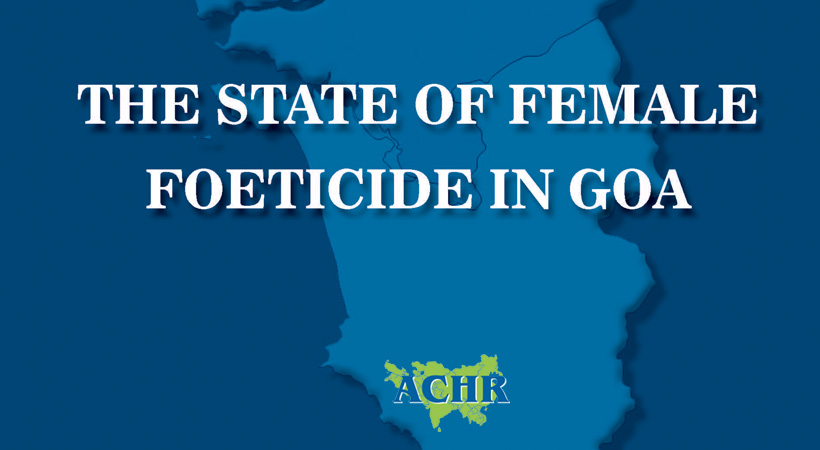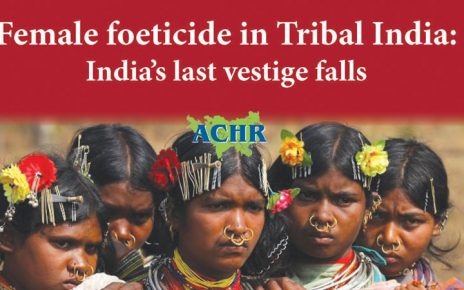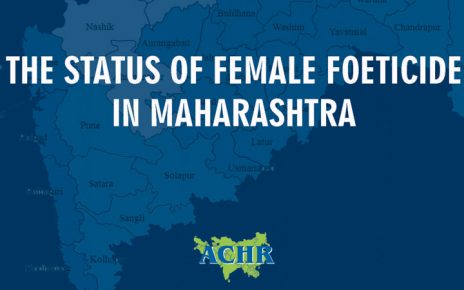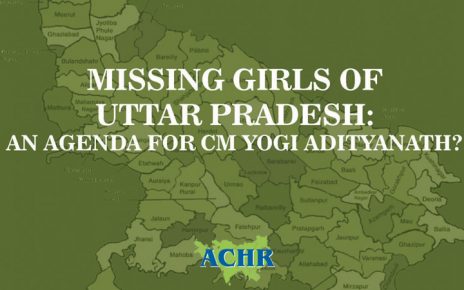Entire India has been affected by declining child sex ratio (CSR) i.e. the number of girls per 1,000 boys in the age group of 0-6 years. The declining CSR in Goa is a consequence of the use of diagnostic technology for sex determination and abortion and other extremely harmful social practices including legal sanction for son preference. From maintaining CSR of well above 1,000 girls throughout the first sixty years of 20th century with 1,120 girls per 1,000 boys during 1921, Goa hit the rock bottom at the turn of the 21st century with CSR of 938 in 2001 before recovering slightly to 942 in 2011.
Son preference is the only plausible explanation for the sharp decline of child sex ratio in Goa. The “Goa Development Report” of the Planning Commission of India stated, “Given the evidence that there is a male child preference and the low fertility rate is leading to a falling family size, it is not unlikely that the choice of children (both number and sex) is not happening randomly but by means of sex selective techniques and abortions/female foeticide”. Then Chief Minister of Goa, Manohar Parrikar while launching the Ladli Laxmi Scheme stated, “One of the reasons behind female foeticide is the fact that parents have to spend money during their daughters’ marriages”.
In one hand, Goa has been implementing two schemes namely MAMTA and Ladli Laxmi Scheme to arrest the declining child sex ratio and prevent female foeticide; on the other hand, the State continues to legalize son preference and discrimination against the girl child under the Goa Civil Code. The Family Law of Usage and Customs of Gentile Hindus’ of Goa” codified under the Goa Civil Code blatantly promotes son preference by allowing “simultaneous polygamy” by a Hindu man to marry a second wife if the first wife doesn’t have any child till the age of 25 or if she does not have a male child till the age of 30.
As per 2011 Census, Scheduled Castes’ CSR (1015) and Scheduled Tribes’ CSR (1046) was much higher than the State CSR which clearly indicates that sex selection is prevalent among the dominant groups only. As per 2011 census, 66.09% of the Goa’s population are Hindus while 26.68% are Christians and 8.34% are Muslims.
Despite inclusion of all social and economic classes of society under the MAMTA scheme, it has failed to find support among the public because of its extremely low financial assistance of Rs 25,000 in five instalments over a period of about 21 years (i.e. till the girl child completes graduation). Further, the MAMTA scheme provides assistance only to two girl children per family which is antithetical to its primary objective of increasing female child ratio. As a result, the MAMTA scheme could enroll only 14,554 beneficiaries from its inception i.e. during the period from 2011-12 to 2014-15. As per the National Family Health Survey-4 (2015-16), 96.9% of the births in Goa are institutional and it is clear that the State Government of Goa failed to cover all those born in hospitals considering that as per 2011 census, a total of 70,151 females in the age group of 0-6 years or an average of 10,021 girls are born annually in Goa. If only 14,554 beneficiaries were extended benefits under the MAMTA scheme from 2011-12 to 2014-15, it implies that an average of only 3,639 girls were given benefits annually against the birth of 10,021 girls i.e. 36.3% of the girls born annually.
Similarly, the Ladli Laxmi Scheme which provides financial assistance of Rs 100,000 (one lakh rupees) to a woman for marriage is bogged down by too many eligibility conditions and documentations required to access the scheme. As a result, only a total of 23,105 women were provided benefits under the Ladli Laxmi Scheme since its inception i.e. from 2012 to 2015.
The enforcement of the Pre-Conception and Pre-Natal Diagnostic Techniques (PCPNDT) Act, 1994 remains extremely poor. Not a single conviction has taken place in Goa despite that during 2009-10 to 2012-14, a total of 20 cases were filed in the courts for violations of the PCPNDT Act. On other hand, the National Crimes Record Bureau of the Ministry of Home Affairs had recorded three cases of infanticide in Goa during 2005 to 2014 i.e. one case each in 2006, 2007 and 201010 which clearly establish continued discrimination and acts of violence against girl child.
Conclusion and recommendations:
Asian Centre for Human Rights recommends the following to the State Government of Goa:
On the MAMTA scheme:
- Revise the MAMTA scheme to increase the amount for post birth benefits to at least Rs 50,000 and subsequent benefits @ Rs 50,000 per installment and further provide scholarship every year;
- Increase the deadline for submission of application up to minimum of one year from date of birth and for all subsequent instalments;
- Provide benefits to all girl children and not upto two daughters only;
- Undertake specific programme for increasing coverage of all families under the MAMTA scheme by connecting the programme with all hospitals, nursing homes etc;
- Digitalise the list of beneficiaries and related information, funds sanctioned and utilization certificates and upload the same in the website of the District concerned; and
- Conduct an audit by the Comptroller and Auditor General of India;
- On the Ladli Laxmi scheme:
- Remove the condition provided under the Ladli Laxmi Scheme that upon the demise of the girl/woman before the marriage, the amount in the fixed deposit shall be forfeited by the family of the girl/woman beneficiary and transferred back to the Government;
- Remove the residency condition of the girl and her parents and submission of residence proof documents or related documents;
- Digitalise the list of beneficiaries and related information, funds sanctioned and utilization certificates and upload the same in the website of the District concerned; and
- Conduct an audit by the Comptroller and Auditor General of India.
- On Laws:
- Undertake effective measures to monitor and ensure proper implementation of the PCPNDT Act and MTP Act; and
- Amend the Family Law of Usage and Customs of ‘Gentile Hindus’ of Goa to remove the sanction allowing polygamy if the first wife doesn’t have any male child till the age of 30.




